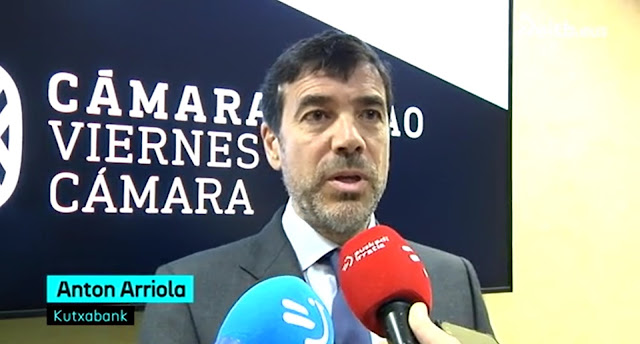Sectoral Territorial Plan for Renewable Energy
On April 27, 2023, the Basque Government ordered the public exposition of the U.S. Renewable Energy Sector Territorial Plan (PTS) by Order published in the Official Gazette on May 10, 2023. The deadline for submitting claims was 21 July 2023, when the request for an extension was rejected by the Counsellor for Economic Development, Sustainability and the Environment. Thus, the period of public information passed with the municipal elections, which significantly affected the process of citizen and institutional participation, leaving the municipalities without functions during the elections and shortening the period.
The justification for the suitability of the PTS for Renewable Energies should be based on six fundamental principles: the actual quantification of the electricity needs in the CAPV, the diversification of the processes for obtaining electricity, the selection of centralised or decentralised models for generating renewable energies, the selection of the most appropriate sites from the point of view of the Spatial Planning and the respect for the transparency and citizen participation in the planning.
It is known that the CAPV depends entirely on the energy sources generated outside its territory, so it is necessary to establish a policy of reducing consumption and encouraging activities that require less energy consumption. In other words, products with lower energy consumption should be promoted on the market, from the acquisition of materials to the whole value chain of the subsequent production and distribution process.
However, the need for electric power has not been discussed: basically, following the capitalist logic of economic profit accumulation, the PTS raises numerous possible locations for the implementation of large-scale projects. These projects, supported by international capital funds, have also been in line with projects that are simultaneously promoting the connection of the electricity grid with major energy transport corridors internationally. Consequently, the strategy of the plan is under no circumstances geared to local provision, but to the export and marketing of energy generated in the CAPV to other European consumption points. This model leads to the conversion of the territories of generation into true energy colonies 3.0.
PTS should be a tool for planning different types of renewable energy generation facilities, but the current proposal prioritizes wind or photovoltaic power plants to the detriment of self-consumption and decentralised and distributed generation. It is therefore unable to reach the greatest possible consensus among the social partners or to adapt to the criteria of territorial planning. This conflicts with certain determinations of the Spatial Planning Guidelines (DOT) and the Partial Territorial Plans of the 15 functional areas of the Autonomous Community of the Basque Country.
CAPV is totally dependent on energy sources generated outside its territory, and a policy to reduce consumption and encourage activities requiring lower energy consumption is therefore needed.
In fact, the current PTS proposal has been drafted on the basis of a criterion that considers the whole territory as a resource for exploitation. The objective of the Plan is to set up a large number of sites for wind and photovoltaic power plants that can offer the most cost-effective energy alternative, only economically. Thus, the premises laid down in the Spatial Planning Guidelines have been omitted in order to avoid the indiscriminate construction of wind power plants on the mountains. Likewise, the Plan omits the regulations established in the Territorial Plans Sectorial Agroforestry, Litoral, Márgenes de Ríos and Arroyos and Wet Areas in relation to the use of non-urbanizable land. In this sense, incompatibilities with the Partial Territorial Plans of the current Functional Areas stand out, as well as violations of the norms that determine land use in municipal planning.
These contradictions entail the total or partial invalidity of the current proposal of the Sectoral Territorial Plan for Renewable Energies, in accordance with the provisions of the Law on Spatial Planning and the criterion of regulatory hierarchy.
The object of this PTS, which began to be dealt with in 2021 without the slightest social consensus, and whose immediate approval, is a clear indication of the dependency of the Plan on Private Interests. This changes the spirit of the rules that have characterised spatial planning since its inception, undermining what should be an approach to the common interest, respecting the natural and rural environment.
The massive installation of photovoltaic and wind power plants has an impact on the environment, permanently and irreversibly modifying not only the landscape impacts, but also the activities and social structure affected by these infrastructures. It is therefore necessary to rethink this plan and carry out a thorough analysis of the suitability of the proposed model, especially in order to respond to the social interest. As to the risks arising from this plan, the technical departments of the Foreign Ministers have issued unfavourable reports that have not been taken into account. In addition, the municipalities that have denounced, within the scope of their powers, the urban illegalities that this plan entails have been ignored. The municipalities concerned have not received any reply.
It is particularly serious that local authorities and municipalities have not been involved in the drafting of the PTS for Renewable Energy, especially when these proposed energy plants in rural areas are incompatible with the urban and territorial rules of the municipalities and, in many cases, affect protected areas. It is also worrying that virtually all locations of PV plants are foreseen in agricultural land of high agrological value of strategic interest.
In addition, there is a clear conflict of interest, as the owner of the department responsible for the elaboration of the Renewable Energy PTS is the same as that which assesses its environmental impact. In this regard, the mandatory resolution of the environmental body on the environmental impact of the plan is pending, but both are under the direction of Mr. Orcajo, of the same Department of Economic Development, Sustainability and the Environment of the Basque Government, an environmental and industrial body active in the energy field, which is an irregular and exceptional situation.
Today, seven months after several municipalities, administrative boards, associations and citizens submitted 4,000 allegations to the PTS of Renewable Energy, we have not yet received a reply from the Department of Economic Development, Sustainability and the Environment of the Basque Government competent in the processing of this Plan.
Meanwhile, and pending approval by the US PTS, PV and wind power plant projects continue to spread throughout the CAPV territory, although this expansion has no legal value. Consequently, there is a marked arbitrariness, which degrades the rule of law and which attacks citizens, endangering the rural and natural environment.
Where are the limits?
We invite you to the demonstration on April 13 in Azpeitia. Come with us!
Igor Bernaola and Jon Arias, members of the Basque Network Herria Bizirik
Bidali zure iritzi artikuluak iritzia@argia.eus helbide elektronikora
ARGIAk ez du zertan bat etorri artikuluen edukiarekin. Idatzien gehienezko luzera 4.500 karakterekoa da (espazioak barne). Idazkera aldetik gutxieneko zuzentasun bat beharrezkoa da: batetik, ARGIAk ezin du hartu zuzenketa sakona egiteko lanik; bestetik, egitekotan edukia nahi gabe aldatzeko arriskua dago. ARGIAk azaleko zuzenketak edo moldaketak egingo dizkie artikuluei, behar izanez gero.
You may not know who Donald Berwick is, or why I mention him in the title of the article. The same is true, it is evident, for most of those who are participating in the current Health Pact. They don’t know what Berwick’s Triple Objective is, much less the Quadruple... [+]
The article La motosierra puede ser tentadora, written in recent days by the lawyer Larraitz Ugarte, has played an important role in a wide sector. It puts on the table some common situations within the public administration, including inefficiency, lack of responsibility and... [+]
Is it important to use a language correctly? To what extent is it so necessary to master grammar or to have a broad vocabulary? I’ve always heard the importance of language, but after thinking about it, I came to a conclusion. Thinking often involves this; reaching some... [+]
The other day I went to a place I hadn’t visited in a long time and I liked it so much. While I was there, I felt at ease and thought: this is my favorite place. Amulet, amulet, amulet; the word turns and turns on the way home. Curiosity led me to look for it in Elhuyar and it... [+]
Adolescents and young people, throughout their academic career, will receive guidance on everything and the profession for studies that will help them more than once. They should be offered guidance, as they are often full of doubts whenever they need to make important... [+]
We have had to endure another attack on our language by the Department of Education of the Government of Navarre; we have been forced to make an anti-Basque change in the PAI program. In recent years, by law, new Model D schools have had to introduce the PAI program and have had... [+]
Public education teachers have the need and the right to update and improve the work agreement that has not been renewed in fifteen years. For this, we should be immersed in a real negotiation, but the reality is deplorable. In a negotiation, the agreement of all parties must be... [+]
A few weeks ago, on Diputación Street, in the centre of Vitoria-Gasteiz, two men threw a homeless person off the small landing outside the place where he slept. In addition to being thrown away, a metal railing was immediately placed in front of the lonja. Although the place... [+]
From linguistics or glotophobia and, of course, hatred against Basque, we have often seen our Basque become the dandruff of all sticks. Last of all, the president of Kutxabank, Anton Arriola, has been shaking our language and giving us galantas.The President of Kutxabank,
... [+]
Do not look for this connection from Ezkio or Altsasu, let alone crossing the Ebro River through Castejón. The connection, or rather the connections, between the Basque Y and the AVE of Navarre is already a reality. It is these links in the plural that should concern us and... [+]
Don't make a fuss, don't confront, don't victimize... and obey. As oppressed subjects, in this case as Basques, we talk, how many times have we had to listen to them? Ironically, two years ago, at the Euskalale Independentiston Meeting, Esne Arzallus said: "We have arrived here,... [+]
Aurten "Israel Premier Tech" txirrindularitza talde israeldarra ez da Lizarraldeko Miguel Indurain Sari Nagusia lasterketara etorriko. Berri ona da hori Palestinaren askapenaren alde gaudenontzat eta munstro sionistarekin harreman oro etetea nahi dugunontzat, izan... [+]
Intsumituek denbora luzez egindako borroka gogorra eta mingarria izan zen, baina irabazi zuten, eta garaipen hura behin betikoa izango zela uste genuen, atzera bueltarik gabea. Baina badirudi, politikari batzuen ahotik aterata, eskalada militaristari gorazarre egin eta berriz... [+]
Punto Bobo liburuaren irakurketan murgilduta, Itxaso Martin Zapirain egilearen Eromena, Azpimemoria eta Isiltasunak Idazten ikerketa lanean sentitu nuen egiazkotasun eta maila etikoarekin egin dut berriz ere topo. Eta hortaz, hara bueltatu. “Oihu izateko jaio zen isiltasun... [+]










